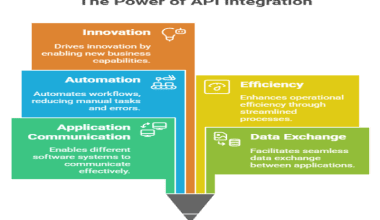Summary: Discover the complete guide to business analyst salaries in the Indian market for 2025. This blog covers average pay scales by experience, top-paying industries and cities, career progression, and the impact of skills and certifications on your earning potential to help you navigate this thriving career.
Introduction: Why Business Analysts Are in Demand
In today’s rapidly evolving digital economy, businesses need professionals who can bridge the gap between technology and strategic objectives. This is where the Business Analyst (BA) steps in. BAs are crucial interpreters, translating complex business needs into actionable IT requirements.
The demand for skilled BAs in India is booming, driven by accelerated digital transformation across sectors like FinTech, E-commerce, and healthcare. If you are considering a career in this field, understanding the expected business analyst salary in 2025 is vital.
This guide provides a comprehensive breakdown of earning potential for BAs in the Indian market, helping you navigate your career path with clarity.
Key Takeaways
- Experience and specialized skills significantly increase your business analyst salary.
- FinTech and IT are the highest-paying industries for business analysts.
- Bengaluru and Mumbai offer the most competitive business analyst salaries.
- Certifications like CBAP can substantially boost your overall earning potential.
- Career growth can lead to high-paying strategic leadership roles.
Average Business Analyst Salary in 2025
The average business analyst salary in India varies significantly based on experience, location, and specific skill sets. As of 2025, the market is experiencing strong growth, reflecting the high value companies place on strategic decision-making.
Here is a general breakdown of the average pay a business analyst receives in India:
Entry-Level (0-2 years)
Freshers and junior BAs can expect to earn between ₹4 LPA and ₹8 LPA. This range is common for those starting their careers, focusing on foundational skills.
Mid-Level (3-5 years)
Experienced BAs with proven track records can command salaries between ₹8 LPA and ₹15 LPA. This is often where salaries see the most significant jump.
Senior-Level (6+ years)
Senior BAs and Lead Consultants can expect salaries to reach up to ₹ 38.5 LPA or more, particularly in high-demand niche areas or top-tier companies.
Factors That Influence Business Analyst Salaries
Business analyst salaries are shaped by a combination of personal qualifications and market factors, with the greatest rewards going to experienced, highly-skilled professionals working in lucrative sectors and locations. Here are some of the key factors impacting the salary of a business analyst:
Experience and Skill Set
Your years of experience are directly proportional to your earning potential. However, specific skill sets—like proficiency in Agile methodologies, data analytics, or AI tools—can significantly boost your salary.
Education and Certifications
While a bachelor’s degree is standard, a master’s degree (such as an MBA) often leads to a higher starting salary. Certifications from recognized bodies like IIBA (e.g., CBAP) validate your expertise and are major differentiators.
Domain Specialization
A BA with deep domain knowledge in a high-demand sector (like FinTech or Healthcare IT) will earn more than a generalist. This specialized expertise is crucial for high-value projects.
Industry-Wise Salary Comparison
The sector you choose has a measurable impact on business analyst salary, with compensation varying substantially across industries due to demand, regulatory complexity, and value-add potential.
IT Services & Product Development
BAs here are key to agile delivery and process automation. Startups and MNCs provide upper-tier salaries due to their scale, technical complexity, and reliance on business-driven tech solutions.
FinTech and Banking
Salaries are high because BAs must navigate tight regulations (AML, KYC, etc.) and deliver precise, audit-ready analytics, often under significant operational risk and scrutiny.
E-commerce and Retail
These sectors leverage BAs for data-driven marketing, personalized UX, and inventory/supply optimization. Salaries remain strong given the competitive, growth-oriented environment.
Healthcare and Pharmaceuticals
The ability to interpret healthcare datasets and ensure regulatory compliance (HIPAA, FDA) positions BAs for premium pay, especially in large healthcare systems or biopharma firms.
Consulting
While slightly lower on average than IT or banking, consultants often enjoy diverse projects and higher bonuses for successfully delivering value to clients.
Top-Paying Cities for Business Analysts
Location is a crucial determinant of business analyst salary in India. Major metropolitan areas, serving as tech and business hubs, offer higher compensation to offset the increased cost of living and compete for top talent.
The leading cities for high business analyst pay include:
- Bengaluru: India’s Silicon Valley remains the highest-paying hub for IT professionals, including BAs.
- Mumbai: The financial capital offers premium salaries, especially in the FinTech and banking sectors.
- Delhi/NCR: A hub for startups and corporate headquarters, offering strong salaries across various industries.
- Hyderabad and Pune: Emerging tech cities with competitive pay scales, often slightly lower than Bengaluru but still strong.
Business Analyst Career Progression and Earning Potential
These pathways offer a blend of deepening expertise and growing leadership responsibility, culminating in roles that can shape business direction and drive substantial business value and rewards.
Entry-level / Junior BA
Focuses on gathering data, documenting requirements, preparing presentations, and supporting senior analysts. Demand for technical literacy (SQL, Excel, basic reporting) is high.
Business Analyst
Becomes accountable for full requirements management, facilitates meetings, validates solutions, and begins working autonomously with business users.
Senior Business Analyst
Takes charge of complex or cross-functional projects; guides process re-design; often leads a small analysis team or acts as the point of contact for major stakeholders; specializes by industry or technical area.
Lead / Principal Consultant
Strategizes across multiple projects, establishes standards/best practices, manages BA teams, advises on enterprise-level change; frequently deals with senior management and is involved in organizational transformation efforts.
Product Manager / Business Solutions Manager
Moves from requirements to defining business direction, leading product vision, prioritizing features, aligning delivery with business value, and handling significant budgets; expected to operate at the intersection of business and technology.
Director/VP/CXO (e.g., Chief Digital Officer, CIO, VP of Product/Analysis)
Former BAs who excel in stakeholder management and strategy can rise to executive leadership, overseeing portfolios, organizational transformation, and influencing entire business units.
Lateral and Specialized Paths
- Business Intelligence Analyst / Data Scientist: For those leaning heavily into analytics and data science.
- Solution Architect: For BAs with a technical (system design) emphasis—work on creating system blueprints aligning business with IT solutions.
- Management Consultant: External consulting for those wanting variety, broader impact, and frequent client interaction—often with higher but variable pay.
Earning Potential Notes
- Compensation rises sharply at each stage, with the greatest jumps occurring at senior, lead, and management/executive levels.
- Consulting, fintech, IT, and healthcare roles often offer the highest rewards due to demand for advanced analytical and regulatory skills.
- Executive/specialized roles (Director/VP or above) include significant bonuses, profit sharing, and possibly equity—far surpassing base salaries.
Advancement Timelines
- Typical progression: Junior to Senior BA in ~5–7 years, Lead or Product roles in 8–12 years, executive leadership possible after 15+ years, though exceptional performers may move faster based on results, certifications, and industry.
Freelance vs. Full-Time Business Analyst Roles
Choosing between a freelance or full-time role impacts your business analyst pay structure. Here is the quick comparison of the business analyst role when they are working as a full-time employee or freelancer:
Full-Time
Offers stability, benefits (health insurance, retirement), and predictable career progression. Salaries are structured annually.
Freelance/Contract
Offers higher hourly rates (often 30–50% more than the equivalent full-time rate) and flexibility. However, it lacks stability, requires constant self-marketing, and necessitates managing your own taxes and benefits.
Frequently Asked Questions
What are the most important skills for a high business analyst salary?
High-earning BAs possess strong analytical and communication skills. Proficiency in SQL, data visualization tools (like Tableau or Power BI), Agile/Scrum methodologies, and specific domain knowledge (FinTech, AI, etc.) are essential to secure a premium business analyst salary.
Why do specialized industries pay higher salaries for BAs?
Industries like FinTech, healthcare, and advanced manufacturing require specialized BAs who understand complex regulations and technical nuances. This specialized expertise is scarce and valuable, leading companies in these sectors to offer a higher average business analyst salary to attract and retain top talent.
How can I transition into a Business Analyst role?
Transitioning typically involves gaining foundational business knowledge, understanding technology trends, and acquiring recognized certifications. Networking, developing strong soft skills, and demonstrating analytical capability are key. Many successful BAs transition from roles in engineering, finance, or quality assurance.
Conclusion: Securing Your Future as a Business Analyst
The role of a Business Analyst is highly lucrative and strategically vital in the Indian market. While the business analyst salary is promising, maximizing your earnings requires a combination of specialized skills, relevant certifications, and strategic career moves.
To achieve top-tier business analyst pay, consider specializing in a high-growth sector like FinTech or data analytics. The future of the BA role is bright, particularly for those who can adapt to new technologies and drive transformative change within organizations.




